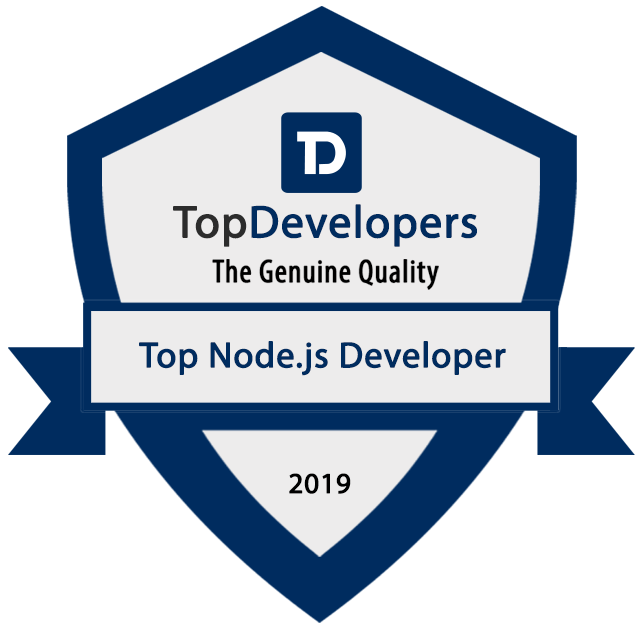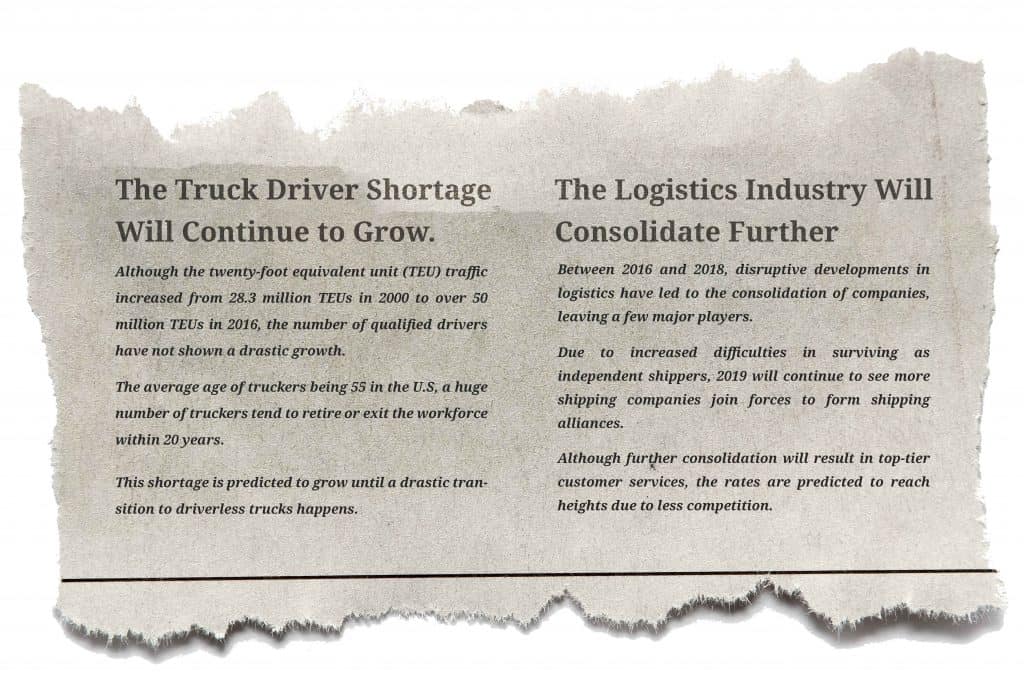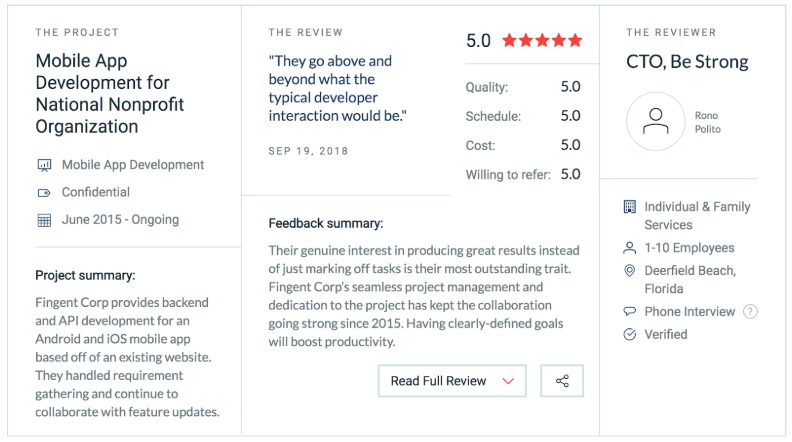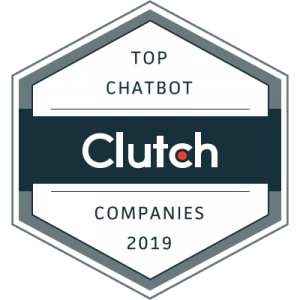Category: Custom software
Address Your Parking Woes With Intelligent Parking Management
Many of you might have experienced the frustration of finding a spot to park your vehicle while going for shopping in the crowded shopping plazas. In today’s rapidly growing urban centers, the first touchpoint for a business to focus on is to eliminate the frustration that accompanies the search for a parking space. The objective of this blog is to help businesses enhance their customer experience with an intelligent parking system.
How Crucial is Parking Space in Enhancing Customer Experience?
Traffic congestion has been a major problem in many cities around the world. As a result, hours are lost in search of a parking space. A commuter in Sydney spends around 156 hours annually trying to find a parking space. This definitely adds to their frustration and creates a bad experience even before customers have stepped into your store.
One in three customers will walk away from their favorite brand after just one bad experience. Hence, it’s important to ensure that your customers have convenient parking spaces while they visit your store. This can go a long way in mitigating the risk of losing your customers and saving your reputation on social media.
The role of parking facilities in a customer’s decision to visit your store is emphasized in the Google Reviews feature as well, where visitors are prompted to mention if the store has parking facilities or not. Parking is, therefore, an important aspect of your customer experience.
Read More: Ways to Leverage Smart IT Solutions for your Retail Business
What is an Intelligent Parking System?
An intelligent parking system uses technology to help drivers find and navigate their way to a parking space quickly and easily. It also helps them find alternative routes when there are traffic congestions. This way, intelligent parking systems offer your customers greater convenience.
An intelligent parking system draws customers to your business by using automated parking systems, mobile apps, and street-side sensors. The advent of smart technology has given rise to complex systems that can integrate with other connected systems. This means that businesses can now have a platform that uses relevant information to improve parking management.
What adds to the appeal of these sophisticated parking management systems is that they are extremely easy to use. They just have to download the application from app store to their smartphones. The intelligent parking management system enables parking operators to maintain real-time information on parking availability in street-parking locations, vertical parking structures, underground parking areas, and more. Your customers can access all of this information through the application on their phones.
Read More: How Connected Transportation Will Disrupt the World
How Does the Parking Management System Work?
A parking management system depends either on vehicle movement detection or vehicle video tracking. This uses technologies based either on sensors or on cameras. Each parking area can be installed with sensors or cameras at the access and exit points. This helps in tracking incoming and outgoing vehicles.
Sensors are being successfully used at a single level, multi-level and even on-street parking spaces. When these sensors are installed at each parking spot, accurate data about specific vacant parking spots can be obtained by the customer that delivers a hassle-free parking experience.
Five Benefits of Intelligent Parking Management
- Reduced stress leads to happy customers: Driving through the same street several times trying to find a parking spot increases stress levels. But with the intelligent parking system, a customer can navigate straight to a vacant parking spot and then into your store.
- Saves customer’s time: Your customer will have more time to explore your business offerings instead of driving around your premises looking for a parking space.
- Reduced fuel expenses and increased sales: Since your customer does not have to go in circles searching for a parking space, they tend to save more on fuel expenses. This can even prompt the customer to purchase more from you.
- Lowers pollution: Reduced pollution will contribute to better health for you and your customers.
- Reduces traffic snarls: When there are fewer vehicles on the streets, moving painfully slow searching for a parking spot, congestion on the roads is reduced. This, in turn, attracts potential customers.
The benefits of an intelligent parking management system are manifold. The most crucial factor is that it contributes to enriched customer experience and consequently to an improvement in sales and customer loyalty. At Fingent top custom software development company, we help clients develop applications with advanced technologies such as IoT, AI, cloud, AR, and VR. Reach out to us to discuss more.
Stay up to date on what's new

Featured Blogs
Stay up to date on
what's new



Talk To Our Experts
What considerations should be part of a company’s digital transformation strategy?
Smart business leaders are waking up to the fact that they need to get digital transformation “right” for their very survival. The widespread adoption of technology, rapidly changing consumer behavior, and innovation-triggered disruptions are making digital transformation a must-have for businesses.
In a recent survey by Gartner, 87% of senior business leaders responded that digitalization is a company priority and 79% of corporate strategists said that digital innovation is crucial for reinventing their businesses.
It’s clear that organizations have started thinking about digital innovation. What they need to know next is the best approach to start, lead change, and transform.
In this interview, our Senior Vice President – Process and Technology, Deepu Prakash shares his expert opinion by answering these questions:
- How do you define digital transformation?
- What does digital transformation mean to your company?
- How can a brand identify what digital transformation should mean to them?
How do you define digital transformation?
Digital transformation is the strategic, deliberate, and sustained application of modern digital technologies to deliver highly unique customer value propositions, by making fundamental changes to how a business operates.
Can you explain what digital transformation means to your company?
I look after the process and technology practice at Fingent. To us, digital innovation broadly means three things.
1. Strategic shifts
Our focus has shifted from developing products to developing platforms, both for us and for our customers. We are moving away from a value chain-based model towards managing the entire ecosystem that impacts our customer base. Today, we are on the constant lookout for partnerships that can help us provide a competitive difference to our customer base. We expect cross-industry consolidation in the near future.
Related Reading: Why Business Leaders Must Embrace Digital Adoption
2. Developing operational agility through digitally-enabled processes
We are using digital technology to cut across organizational and departmental silos to provide a better Customer Experience. This results in increased cross-department and cross-organization project management, collaboration, and integration. We are reorganizing our processes to enable experimentation and evidence-based scaling.
From a technology perspective: DevOps practices, APIs, and Unified Identity management are being rolled out across the organization. We are setting up practices to actively leverage third-party developer innovation, to reduce the time-to-market for us and our customers. In fact, one of our products INFINCE is empowering small businesses to achieve digital agility without the need to own infrastructure or an IT practice.
3. Culture and competence:
Despite being a young technology company, we have to work hard to develop the mindset needed to adapt to the massive technology shifts, across all departments. While training helps, it takes continuous coaching and mentoring to help deal with the culture shock that such transformation brings in. Roles and job descriptions may not be so clearly defined as it used to be before. Hence, there is less certainty around outcomes and an increased need for greater transparency than what we had previously.
The ability to exert influence without direct authority is a critical skill for career growth.
How other brands can identify what digital transformation should mean to them?
- Successful digital transformation is less about technology and more about leadership. Hire the right leadership talent to create a digital transformation strategy that would work for your customers and your people.
- Start by deeply re-examining your core business through your customers’ eyes. Ask yourself whether your business will continue to stay competitive or will it be sustainable going forward.
- Map out the entire set of customer journeys. Include customer interactions with your allied products and services. Map modern digital technologies to all these journeys. Identify new channels, new opportunities, and see how you can reach out through all these channels.
- Analyze your state of competition not just with the established players, but also with the startups in your industry segment and adjacent segments, especially with a view to identifying the relevant technologies, platforms, and vendors.
Related Reading: 4 Questions to Ask When Your Business Goes Digital
Need help with your digital transformation goals?
Fingent’s team is highly experienced in helping businesses solve their digital transformation challenges.
We have partnered with businesses worldwide in their digital transformation projects.
We can help you define your vision and create robust digital transformation plans that enable your business to transform and grow. To take advantage and get the ball rolling, please get in touch with Fingent top custom software development company.
Stay up to date on what's new

Featured Blogs
Stay up to date on
what's new



Talk To Our Experts
Fingent Emerges as a Leader in Node.js Development
Fingent is proud to announce that we have been featured in a recent press release recognizing the top Node.js development companies by TopDevelopers.co, a renowned review and research platform of IT service providers.
The importance of Node.js
Node.js is a versatile server-side environment that lets the developer create powerful server-side applications with JavaScript. The availability of a large repository of codes, speed and the efficiency of Node.js are the factors that have contributed to the rising popularity of the platform.
About Fingent
Fingent was established in 2003 with an aim to provide custom software services to our clients. With determination, hard work and a constant focus on the requirements of our customers, we have expanded and today we are serving clients across more than 20 industrial sectors and have an active client base in more than 14 countries covering 4 continents.
With a curious mind and a constant zeal towards customer satisfaction, we have been able to achieve this milestone of entering the coveted list of top Node.js developers.
Why do clients consider Fingent as an efficient service provider?
We have been able to achieve a satisfactory rating of 4.9 out of 5 on the 650+ projects that we have completed. In all these years, we have never lost our focus on understanding the problems of the clients and offering innovative solutions to them. We have established a dedicated research and development center in India to focus on delivering innovative solutions to our customers.
More than 30 companies including brands such as Sony, NEC, PWC, and Johnson & Johnson have named us as their Global IT partners.
We provide a plethora of exclusive and efficient IT services to our clients which includes services like enterprise software development, hybrid app development, Internet of Things, IT consulting, product development services, mobile application development services, Artificial Intelligence, custom software development, cloud computing, iOS app development, and SAP.
We have happily worked with clients from a diverse set of industries like retail, logistics, real estate, oil and gas, healthcare, fitness, legal consultants, chemicals, to name a few, but we have never let them go without a smile of satisfaction after project delivery. Working with diverse industries and varied client requirements has helped us in learning the nuances of each industry, which has ultimately helped us in serving our clients in a better manner.
We helped a client in designing a solution that uses the data of NHS (National Health Service) in the United Kingdom as input and gives interactive visually rich graphs as output. The aim was to analyze the data and provide the users with a list of the best hospitals in the U.K. The solution we developed provides the users with every detail about the hospitals listed. Our portfolio has more details about NHS and a deep insight into our projects, work proficiency, technical product development skills, and professionalism.
“We take a holistic view, considering for instance – the role of the app in the larger ecosystem that may include AI, Big Data and IoT, whether it connects to 3rd party systems, and most importantly the desired Customer Experience across the entire customer journey.” is what our Senior Vice President – Process and Technology, Mr. Deepu Prakash, expressed in an interview with TopDevelopers.co.
The profile of Fingent on TopDevelopers.co has all the interesting details on how Fingent has successfully been maintaining a remarkable balance between the clients we cater to, the various industrial sectors we serve, and the wide range of services that we provide.
Who is TopDevelopers.co?
TopDevelopers.co is a directory and review platform for B2B IT Firms. They offer unbiased service to service seekers, by providing them a listing of genuine and highly professional IT firms, that can help the service seekers in achieving their goals by providing high-quality technical services. The research team of TopDevelopers.co chooses the best firms by filtering a vast list of companies and introduces only the competitive names to the businesses, enterprises, and entrepreneurs to partner with. The company has a friendly team of researchers and a hassle-free communication system. They provide the listing service for various technologies and services, which makes it a one-stop destination to find your perfect technology partner. To give its clients a broad range, TopDevelopers.co reviews companies from all across the globe and you can filter the companies according to the country of origin, size, cost and other parameters.
To know more about why Fingent is rated as the top Node.js development company by TopDevelopers.co and how our skills and expertise can bring your business the competitive advantage to excel, contact us!
Stay up to date on what's new

Featured Blogs
Stay up to date on
what's new



Talk To Our Experts
How Logistics Companies Can Gain Competitive Advantage with Customized Software Solutions?
Fluctuating consumer demands, increasing client requirements, and complex business models are posing critical challenges for logistics companies today. According to predictions made earlier this year, two major drawbacks are to be witnessed in the industry.
With drastic changes hovering over the logistics industry, the players are bound to stay equipped with the emerging technology trends, or they might get caught off guard. While its turning imperative for logistics companies to transform with smarter technologies, the question of whether to choose a custom software or an off-the-shelf package still lingers in many minds.
Why Choosing Customized Solutions Over Packaged Software Considered Profitable In Logistics?
Purchasing an off-the-shelf software would sound comparatively simple, stress-free and time-effective. But in the long run, it’s always a custom-built solution that pays off.
Most packaged logistics software, although sophisticated and deployed of disruptive technologies, pose standard solutions for the industry as a whole. Of course, they solve the major supply chain hassles. But with every business, possessing unique procedures, workflows, and objectives, “not everyone fits the same mold”.
So what happens when you choose a packaged software solution for your logistics business?
1. A packaged software often comes with hordes of features. This sure sounds exciting at the beginning. But when you have to pay for more than you use, it sure isn’t a happy moment! Off-the-shelf software solutions are often crafted considering the large players of the industry. Their features focus on resolving the common challenges faced by these companies.
However, in a complex industry like logistics, it’s not always necessary for every company to face the same kind of issue. Hence, with packaged software being available as a whole for a single price, businesses usually end up wasting money on features they do not need.
2. Off-the-shelf logistics software utilizes the latest and advanced technologies to cater to the complexities of an industry. But however, at times these sophisticated technologies complexes situations even further. For companies with basic knowledge on latest technologies, would definitely find it difficult to carry out operations successfully with a sophisticated system.
Moreover, they would have to spend extra time and money on training staff, which is not reasonable in a highly competitive industry like logistics. As mentioned before, with plenty of features, packaged solutions often prove to be less user-friendly and more complicated.
3. Although packaged solutions solve a list of logistics hurdles, their features might not provide a complete automated solution. You might find a good Transportation Management System (TMS) that enables real-time tracking and automated reporting, but you might still have to communicate with your customers, and assigned drivers manually.
Also, an efficient packaged TMS system might have an integrated warehousing management system, but might not facilitate an appropriate billing system, leaving the need to adopt alternate transaction processing systems. Hence, in a nutshell, complete automation is often unattainable with packaged software solutions.
4. The most eminent reason to not opt for a packaged solution is that they are rigid. There is hardly any packaged software company that allows customization. It’s not only rare to find a packaged software that caters to all your business-specific needs, but it also proves to be non-scalable in the long run.
Growth in your business and changes in the market will bring about an increase in your technology requirements. This will result in the need for a solution that can be customized with your growing business necessities.
Customized logistics software eliminates all the above-mentioned drawbacks of a packaged solution. Plus, it always comes with continuous technical assistance to simplify the technology transition in your company.
Let’s take a quick look at how a customized Transportation Management System can help you battle logistics challenges better.
Digital Transformation of a Logistics and Supply Chain Company – A Client Success Story
How A Customized TMS Can Enhance Your Supply Chain Efficiency?
Investing in a customized TMS can enable you to create an Uber-like platform for your logistics business. Integrating the latest in web and mobile application solutions, you can create a platform that completely streamlines your driver, client, and cash-flow management.
Enabling centralized data management, transparent billing, delivery match capabilities, along with real-time monitoring and customer insights capturing; a customized software solution can be framed to automate your entire end-to-end logistics operations.
A custom-built mobile application can further enhance productivity with less paperwork, better transparency, easy communication, and improved customer engagement. Implementing a customized solution would also let you add in innovative features that help you automate critical tasks, improve team collaboration, and increase your overall company efficiencies.
Here is a shortlist of benefits that you can acquire with customized logistic software.
1. A customized software solution gives the advantage of integrating with smarter technologies to simplify the minute challenges faced by the industry. For instance, along with assigning and managing truck drivers, a logistics company also faces difficulties in maintaining and verifying driver documents. Integrating with smart apps like Camscanner can simplify these documentation verification complexities.
2. A logistics company with varying client needs might often find difficulties in choosing apt carriers for a given order. A customized solution gives you the benefit to add in features that simplifies such decision making by suggesting the best available carriers for the orders.
3. Although packaged solutions streamline drivers assignment and management, yet they blackout on some eminent functions that logistics companies struggle to maintain. For example, calculating the detention hours/rates of the drivers are likely the most critical task of a logistics company. Through a customized logistics software you can straighten such bends of the industry.
4. With customized logistics software, a logistic company can embrace a completely streamlined and user-friendly accounting system that generates automated invoices as well as tracks any misleads or accounting errors.
Customized logistics software can simplify your logistics operations more than you can imagine. If you are looking for a tech partner to help you add in these features and more to your logistics software, then you have landed on the right page.
Fingent is one of the leading custom software companies providing advanced and user-friendly web and mobile technology solutions for logistics businesses worldwide. Contact us today to know how our custom software solutions can enhance your business abilities.
Stay up to date on what's new

Featured Blogs
Stay up to date on
what's new



Talk To Our Experts
Custom Software Development: What To Do and Not To Do
The “build versus buys” debate in software development seems to have tipped in favor of custom software development as more and more businesses recognize the implications of customization on their growth. With rising competition, it has become imperative for each business to differentiate itself from its competitors in every way and custom software development rests at the core of this differentiation.
That being said, software development has seen its fair share of fails even when it is labeled custom. This makes it extremely important that your project is carefully planned out and well-executed. With many years of experience as custom software developers, we have put together a list of do’s and don’ts to help make your custom software development project a success. This blog will discuss 5 of them. Before that, let’s drive home the reasons why custom software is imperative for businesses.
Related Reading: Check out the top reasons why custom software development is important to your business.
Custom Software: The Backbone of Business
Custom software fulfills specific business requirements, which are unique to specific businesses. This helps businesses gain a competitive advantage and leverage the software to build processes that define an effective USP. While this in itself is an uppercut to reckon with, let’s have a look at a few more points that will help deliver the knockout punch in favor of custom software development.
- Solution Matches Need: Since custom applications are developed with your specifications in mind, the final solution will effectively address your needs. Therefore, it simplifies the entire business process saving time and effort.
- Minimal training: Tailored features make it very easy to use and require minimal training to get started on the software. When the software is optimized for each department, the interface requirements will be customized to match the needs and skill level of your employees.
- Works with your Business Model: As the custom solution is built around your business model, it will have the user roles and interoperability functions that your departments need to function effectively.
- Unique Code and Enhanced Protection: By developing a unique code that is specific to your software, custom software minimizes external threats and unauthorized access.
- Long Term Cost Benefits: Custom software helps automate several manual processes and thus saves on manpower. It also eliminates the licensing costs that accrue with off-the-shelf solutions.
- Increased Scalability: Custom software developers work on a long-term basis and can easily scale the software according to the growth of the business.
The Dos and Don’ts
There are several key steps involved in creating custom software. It involves a combination of foresight and creativity. Here are a few time-tested Do’s and Don’ts to help avoid the usual pitfalls that have been known to crop up in this process.
1. Pre-Planning
Don’t: Do not Ignore Preparation
Clients who are looking for a quick solution for their app requirements generally hire developers who agree to unreasonable deadlines. Under such circumstances, the planning and research step is often ignored and that has a ripple effect on the following stages. Not acquiring the necessary materials from the beginning can leave the company unprepared. This can lead to additional changes and the timeline for your project will have to be pushed back, not to mention escalating the costs involved.
Do: Prepare, Prepare!
The planning stage is crucial because it allows the developer to do a thorough SWOT of the idea. At this stage, some have found it helpful to include sketches or outlines and functionality options of the application. It works best to gather all the necessary information at the earliest stage to ensure your project stays on budget. This allows the project to stay on schedule.
2. Ensure its Customization
Don’t: Create for Yourself
You must have heard of the False Consensus Effect, where one thinks that others also think the same way he/she thinks. This can happen while designing the app. It is easy to put our ideas into a design and expect others to like it just because we liked it. That works contrary to the thought of customization.
Do: Keep it User-Centered
Consider carefully what the general user would appreciate. Developers must stick to the requirements drawn up at the planning stage while continuing to give their inputs on the initial ideas. Take pride in creating a user-centered app.
3. Technical Feasibility and Prototype
Don’t: Allow Misunderstandings
Misunderstanding the business’ requirements, miscommunication about the platform and the format can lead to major issues in creating the app.
Do: Keep Lines of Communication Open
Actively communicate with the team about the technical requirements and provide a timeline for building the prototype. It is difficult to visualize what an app would look like and how it will function unless there is a prototype. Ensure that you communicate frequently with management and obtain feedback at every stage of the development.
4. Design and Development
Don’t: Ignore Key Requirements
Design and development are the stages that take the most amount of time. Ignoring key requirements might lead developers to spend valuable time coding for a bad end-product. Functionality demands might be misread which leads to a loss of time and missed deadlines.
Do: Understand the Needs
It is vital to understand the UI/UX needs of the business to gain clarity and minimize work. The app will go through a lot of different changes. When changes are required, ensure that the development team and management are on the same page. Once decisions are made, stick to them.
5. QA Testing
Don’t: Be Negligent
The testing team should not be negligent towards post-development issues such as bugs, form functionalities, and security licenses. This could negatively impact the launch of the application. It could either be delayed or the app might face a post-launch backlash. Ensure that the app is not launched until all aspects have been tested and are up to the standards required.
Do: A thorough QA Test
App testing is a tedious job, but it is an important final stage. Compatibility, interface, security, and performance are some of the factors that should go through a rigorous check. Remember, after this whatever happens with the app will be in full public view.
Achieve Efficiency and Growth with Custom Software Development
Leading companies save time and costs in the long run when they customize their software according to their business model. Whether it’s creating accounting software or an HR solution or a customer-facing application, custom software allows you to choose the features you need for your business and employees. If you want to find business flexibility and growth, custom software is the right answer. It meets the needs of the company while allowing the business to grow without being limited by on-the-shelf software. To find how custom software development can do wonders to your business, call our experts today!
Stay up to date on what's new

Featured Blogs
Stay up to date on
what's new



Talk To Our Experts
Is Applicant Tracking System The Future Of Hiring Process?
“Hiring the right employee has always been the key element for a successful organization. When you choose the best, you automatically get the best results!” _ Deepu Prakash, Senior Vice President, Process and Technology, Fingent
While candidates come aplenty, finding the right talent from the pool has always been an enormous challenge for recruiters and staffing agencies. Thankfully, technologies like AI-powered Applicant Tracking Systems are changing that in a big way.
An Applicant Tracking System (ATS) is a software that automates the recruitment process. It electronically filters, organizes and streamlines job applications according to job postings. ATS simplifies the complex process of recruitment by providing a centralized platform to view applicants. AI-powered Applicant Tracking Systems enable filtering applications based on set criteria and helps recruiters a big way, in tracking the advancement of applicants through the hiring process. In this article, we will consider how ATS can prove beneficial to recruiters and staffing agencies in particular.
How Does ATS Transform Hiring Norms?
ATS collects and maintains a database of candidate resumes and applications within itself. ATS tools help in hiring managers and corporate recruiters track and filter resumes in the hiring funnel. The major difference between traditional hiring and hiring with the help of ATS can be compared to the difference between fishing with a hook and fishing with a net. The benefit of the latter is a much bigger catch! ATS allows recruiters to track hundreds of applicants more efficiently rather than handle each applicant manually.
Companies that outsource talent can benefit greatly from ATS. Since they are not limited by geography, they can cast their net globally. It is not uncommon for a company to receive thousands of applications for a remote job they have posted. With ATS, they can filter out the right candidates for the job and save time and cost.
How HR and IT Combine to Deliver Real Value to the Enterprise
How Does ATS Empower Corporate HR?
ATS empowers the recruitment process in the following ways:
- ATS enables recruiters to post jobs online, receive and sort applications, screen out unsuitable candidates, process applications, communicate with candidates quickly, organize interviews and even handle the hiring process online.
- The AI integration enables ATS to identify patterns and segregate resumes/candidate profiles according to various departments and customized fields.
- One of the most important benefits is that it saves time. It is estimated that resume screening and candidate shortlisting can take 23 hours and making a hire could take four months. ATS can make this task easier, faster and automated, thus reducing the cost-per-hire and the time-to-hire.
- ATS allows corporate recruiters to be proactive and create jobs on platforms, which can be published on social media networks as well as targeted job boards.
- ATS assists corporate recruiters to screen candidates, to ensure they progress through the workflow process and store all the documentation in one place. It helps them to monitor applications at each stage and identify any issues early on thus reducing the time-to-hire period.
- Another important recruiting goal and challenge are accessing the right candidate skills. ATS includes features for customizable interview scorecards and questions. It allows recruiters to customize them based on the most important characteristics. This makes candidate evaluation easier and efficient.
- With AI-enabled ATS, recruiters can also set match levels for various job roles under different departments.
- An ATS with good reporting functionality will be able to help corporate recruiters measure the effectiveness of marketing. A good reporting engine will help recruiters, quickly pull out reports which show things like diversity statistics and the source of the application.
- Online job boards make it quick and convenient for candidates to apply for open positions resulting in a load of unrelated applications. An ATS is capable of quickly weeding out those unqualified candidates even before humans open a resume.
Related Reading: Check out how Odoo can help meet HR requirements.
How Does ATS Empower Staffing Agencies?
More than 98% of Fortune 500 companies are using ATS. This is a clear indication that ATS is an indispensable software for staffing agencies. Here are a few reasons why:
- An ATS helps staffing agencies grow their business. The bigger the staffing agency, the more complex their database. Communication, tracking candidates, and other recruiter activities can become difficult to manage. AI-enabled ATS identify patterns and sorts resumes according to job profiles helping recruiters choose the best candidates among the large pool.
- ATS empowers staffing agencies to source candidates more efficiently. The existing candidate pool within an ATS is often a very good resource for finding quality candidates.
- A good ATS has an open ecosystem where you can match solutions to needs effectively. This allows users to customize ATS to meet a client’s specific needs by adding partner extensions, integrating third-party vendors, and building new applications on the platform.
- ATS improves the candidate experience. According to key findings in a Global Recruitment Insights and Data study, respondents said that “candidates will matter most in 2019, with sourcing (61 percent) and candidate engagement (36 percent) leading the pack.” ATS along with its integrations can help in this regard by simplifying and enhancing every step of the candidate experience.
- It helps agencies keep their clients happy by improving client management. ATS can log all of your conversations with a client automatically.
- ATS helps staffing professionals to be more productive because it allows team members to work from anywhere and still collaborate effectively.
- The conventional recruiting process causes a lot of friction between hiring managers, the HR department, and others involved in the process. An effective AI-powered ATS will help smooth things out and reduce disagreements, thus making it easier for all involved to work together.
- A shorter time to hire always works better for the organization. Not only does it save resources, but it also ensures that suitable, qualified candidates are selected and hired quickly before the competition has a chance to snatch them away.
Power Charge Your Hiring Process with ATS
As discussed, a good ATS will illuminate and guide all aspects of the recruitment process. It will help corporate recruiters and staffing agencies better understand their candidate pool and make quicker and more effective hiring decisions. It is reported that 86% of staffing professionals were able to hire faster with the help of ATS. Understanding and using the candidate database to improve hiring performance helps the business act more quickly. Quicker onboarding process results in increased productivity, which translates to more profitability.
Fingent top custom software development company, will understand the need to keep pace with the requirements of today’s market. Bringing together smart AI and recruitment practices, we create purpose-built software to help you reach your ideal candidates faster. So let’s get you started with an Application Tracking System that will transform your business and beat the competition.
Watch more about Applicant Tracking System.
Stay up to date on what's new

Featured Blogs
Stay up to date on
what's new



Talk To Our Experts
Fingent Yet Again Ranked Amongst The Top Developing Companies of New York
Utilizing enterprise technology, Fingent develops best in class software solutions for businesses, to help them prepare better for the future. With our customized web and mobile applications, leading enterprises of variant industries have transformed efficiently to provide quality customer services and remarkably grow in the market. Recognizing our hard work and dedication to our clients, we are yet again ranked amongst the top developing companies.
We’re excited to announce that Fingent has been featured as a top-performing New York developer on Clutch!
Clutch is a ratings and reviews platform for B2B agencies like ours, and they are dedicated to showcasing the best companies around the globe. We earned recognition as a top custom software development firm from Clutch after being evaluated on several different factors, including our market presence, our extensive online portfolios, and, most importantly, verified reviews from former clients. Since we value our client’s opinion above anything else, we are proud to see their positive reviews on our Clutch profile. Here’s just one example of our awesome reviews that have resulted in a 4.9-star rating on Clutch:
We’re grateful to Be Strong and to 26 of our other clients who have taken the time to leave us a review. Our CEO and MD had a few words to share with the Fingent community about winning this award:
“Clutch’s new assessment putting us at the forefront as a leading development company in the United States once again testifies to the sheer quality of services that we offer. Being included in the report highlights our core capabilities as a professional development company that constantly upholds exceptional development standards and service integrity.” – Varghese Samuel, CEO & MD, Fingent
We would also like to highlight our presence on The Manifest, Clutch’s sister site and business how-to resource. We are also featured on Visual Objects, a platform that equips buyers with a digital portfolio of the past projects of various B2B agencies.
To know more about why Fingent is constantly rated as the top developing company of New York and how our skills and expertise can bring your business the competitive advantage to excel, contact us now!
Stay up to date on what's new

Featured Blogs
Stay up to date on
what's new



Talk To Our Experts
Are Progressive Web Apps A Better Choice Than Native Mobile Apps?
Mobile Apps not only dominate electronic space on our mobiles but also play a dominant role in our lives. Many people around the world tend to start their day not with a morning cup of coffee but with a mobile app. Decisions as simple as which fitness routine to choose to critical financial decisions are often based on information obtained from mobile apps. More than ever before, people are downloading and using a large number of apps which are not only helping them find what they want instantly, but also assisting them in accessing information, buying products, availing services, and staying updated about new offerings.
With apps dominating the market, it is no longer relevant to ask if your business needs a mobile app development. The question is which mobile app is better for your business. If a native mobile app is what you have, should you be concerned that progressive web apps might topple native mobile apps? This blog will discuss these questions in detail.
Are you looking forward to building an innovative mobile app to boost your revenue?
Get your FREE mobile app specification template here!
Why Choose The Right App Development Strategy?
Mobile apps are like route maps to your business. A wrong app design could confuse your customers. This either results in them losing interest in your product or worse yet, leads them right into the arms of your competitors. Therefore, choose your app development strategy carefully. Between a native app, a web app or a hybrid app, consider which of them would be appropriate for your business? The technology you select is what determines how your app will be developed and how users will interact with it. Choosing the wrong technology can be an expensive mistake resulting in inaccessibility or poor performance. Here are a few answers to questions that will help you choose the right technology.
What is a progressive web app?
Web Apps which blend the best features of Native and Web Apps are called Progressive Web Apps. They are called progressive because as the name suggests, they are progressing constantly, it is an evolving technology.
How does PWA work?
PWA works in the background, making the user experience smooth. When the user interacts with the app, it loads all the necessary resources. Since PWA uses JavaScript, its code gives the app the ability to work offline and helps load the website faster than native apps. The latest improvements in scripting languages have made it easier to convert or build your website into a PWA. Also, it is gaining more attention from designers and developers.
Related Reading: Check out these four top secret tips to consider while developing a mobile app.
How does PWA have an Upper hand over Native Apps?
In the wrestle between Native and PW apps, many aspects give PWA an upper hand. Here are some of them:
-
Adaptable
Because PWAs are built with progressive enhancement, they work for every user, regardless of the type of browser used. It can automatically adjust to various types of devices such as a desktop, mobile, tablet and so on. In other words, PWAs are not limited to a specific platform. Therefore, you need not develop separate versions of the app for different platforms.
-
Auto Update
Updates are a data consuming and often frustrating aspect of any app. Progressive apps auto-update in the background without disturbing your in-app experience and with minimal data consumption.
-
Easy to Install
Without taking the user to an app store, PWAs allow users to install the website as an app on their home screen. The size of apps that we install from any store varies, but they are quite often in the MBs. With PWA, you don’t need to waste much-needed disk space and internet data because it takes up less than a megabyte of space and it takes less than a second to install. Also, they can be shared easily via a URL and do not necessitate complex installation.
-
Budget-friendly
In terms of app development and maintenance, the biggest advantage for an app publisher is the cost saving. Building a mobile app is not the most budget-friendly thing to do. It takes time and money to build a mobile app. And for it to be popular, it has to be present on all platforms, which further hikes up the price. The PWA alternative is not only, budget-friendly, but can be done in a relatively short time. As it is progressive, it will not need further customizations.
-
Web Push Notifications
PWA is capable of supporting Push Notification API. Studies show that push notifications have a 50% higher opening rate and 7 times higher click rate than email messages.
-
Discoverability
Perhaps, we have spent hours on an app looking for something that we eventually never found. If you want search results from more than one app, you will have to go to each individual app to search. PWA’s however, can be crawled by search engines. You can search for something on Google and get appropriate results from the content inside your progressive app.
-
User-friendly
Progressive Web Apps are available instantly. Since it is built on the app shell model it feels like a mobile app with app-style interactions. To ensure content is securely delivered it is served via HTTPS.
Related Reading: Read on to know whether React Native stands a better chance in mobile app development than Flutter.
Embrace Progress
In a progressive era, such as this, we cannot ignore the importance of mobile application development. The variety of applications we have, suits all kinds of users whether young or old. The PWA market has solutions for each user. Advancement in technologies has also played an important role in the success in PWA. Whether it is business, entertainment, health or education, today each sector is experiencing the benefits of PWAs. PWA technology is improving every day with new functions and features in the making. Advancement in PWA and its technologies may one day pin down native apps.
Read more on top technologies to be used for mobile app development.
Whether it topples native mobile apps or not, it is definitely a good tool in your business arsenal. If that’s what you want, give us a call at Fingent and allow us to help you implement it in your business.
Read More: Mobile App Development : 4 Tips To Consider
Stay up to date on what's new

Featured Blogs
Stay up to date on
what's new



Talk To Our Experts
Clutch Yet Again Rates Fingent As The Top Custom Software Development Company
As a dominant software development company, Fingent sets the bar high in building highly affordable products for companies small and large. We’ve become the trusted partner in enterprise solutions for some of the world’s leading businesses like Johnson & Johnson, Sony, and PwC. Our work and our strong leadership in technologies like .Net, NodeJS, AngularJS, AI enabled Chatbots and Microsoft, has once again caught the attention of Clutch.co, as they recently recognized us as Australia’s top B2B company.
Clutch, is a B2B rating and review platform located in Washington, DC. In their latest report that we were named in, their dedicated analysts evaluated technology sub-services based on their expertise, their portfolio of work, and their ability to deliver top-notch products for their clients. Their independent review process is meticulous and transparent, and we’re especially grateful to our clients for taking the time to leave a review or speak with Clutch analysts over the phone to provide feedback.
[Tweet “Getting featured on Clutch consecutively and this time among Australia’s top B2B companies signify how our services have fared out remarkably well within the user community. @vsamuelfingent“] [Tweet “Surely, this puts further responsibility on our side to constantly improvise the solutions that we offer so that businesses that rely on our services are better off with efficiency improvements and deliver optimal customer experiences says @vsamuelfingent“]Fingent CEO and MD, Varghese Samuel
Beyond the generous reviews left on Clutch, our success is also reflected on the company’s sister-sites: Visual Objects and The Manifest. Visual Objects showcases portfolios from various creative software developers, to aid prospective clients in visualizing a future project before hiring. The Manifest also helps prospective clients, through industry reports and how-to guides, that provide businesses with practical knowledge of the services and technologies used by the B2B companies. Here, we are listed and recognized for our abilities in NodeJS and AngularJS.
Our constant approach in redefining business with trending technologies like Microsoft and Artificial Intelligence have enabled us to rank amongst the top-rated custom software developing companies in Clutch, Visual Objects, and The Manifest. We have repeatedly been appreciated and recognized for our capabilities in AI-driven Chatbots for enhanced user experience.
Our motive to shape the future of industries with enhanced, custom software solutions has led us to where we are today. On behalf of Fingent top custom software development company, we would like to thank all of our clients that we have had the pleasure to work with, and Clutch for this prestigious recognition.
If you would like to learn more about our services, check out our profile in Clutch.
Stay up to date on what's new

Featured Blogs
Stay up to date on
what's new



Talk To Our Experts
Best Retail Mobile App Features To Enhance Your Customer Experience
Speed, convenience, innovation, and customer experience – these are the elements that drive the retail industry today. With consumers becoming increasingly connected and demanding personalized services, retail brands can no longer sit back and expect a good product to do the trick for them. Newer, smaller and yet better tech-enabled retail players are pushing into the market and giving big brands a run for their money. Technology is thus the biggest competitive advantage in today’s digital age, and retailers are recognizing the importance of mobile app technology to communicate their tech-driven goals. In this blog, we will discuss exactly how retail mobile apps are helping retailers boost their business. We will also discuss 3 must-have features in retail apps.
Related Reading: Although mobile apps are a source for greater business success, it’s vulnerable to hacker attacks. Check out the top 8 security issues incurred in mobile app development.
How A Retail Mobile App Can Help Boost Business
The number of mobile apps available today is a testimony to the popularity of mobile apps across the globe. A report by Statista shows that as of the first quarter of 2019, Android users were able to choose between 2.1 million apps and Apple’s App Store had nearly 1.8 million available apps. The demand for apps keeps increasing every day, which proves that they are the preferred choice of interaction among consumers today.
Convenience is the factor that is tipping the scales in favor of mobile apps. E-commerce and online shopping brought shopping into the homes of customers, but mobile apps go one step further and bring it to their fingertips. Here are a few more reasons how retail mobile apps are helping businesses boost sales.
- Increases Reach
The most important aspect of sales and marketing is to reach customers where they are. That’s where mobile app technology brings the biggest advantage. Here are some statistics to show that mobile devices are the best way to reach customers.
- Up to 70% of web traffic happens on a mobile device.
- U.S. consumers’ time spent on mobile crosses 5 hours a day.
- Customers have 2X more interactions with brands on mobile than anywhere else.
- Mobile app usage for shopping grew by 54% in 2017 and continues to increase.
As these statistics show, mobile apps are where the customer is and that is where retailers must focus.
- Builds Loyalty
Mobile apps allow the customer to interact directly with the company quickly and on their schedule. Push notifications and recommendations on their mobiles keep them connected to your brand at all times. Many mobile apps incorporate loyalty programs and gamification features into their mobile apps. This helps in increasing engagement with customers in the way they prefer it.
It also discourages customers from having to look elsewhere – the more they shop, the more they win and the more loyal they become. Rewarding customers for social sharing and referrals build loyalty to the brand as they feel included in the success of the business.
- Improves Efficiency
Mobile apps do much more than bring your products to consumers. They help in building efficiency along with providing ease of access. When it comes to helping customers, features like integrated shopping carts and payment gateways make the purchasing process much smoother and hassle-free.
From the operations perspective, this helps efficiently record, track and implement invoicing and inventory management. Mobile apps also offer features like employee scheduling, CRM, real-time inventory check-up and other functionalities that help employees better serve the needs of customers.
Contrary to driving business away from brick and mortar stores, mobile apps can impact and support in-store operations as well. With features that can help locate products in the store, Wishlist building, barcode scanners, and faster payment options, mobile apps can provide excellent support in-store as well.
3 Must-Have Features in A Retail Mobile App
Now that we’ve established how important mobile apps are in the retail business, let’s see what will get your app ahead of the competition. For a mobile app to be successful, it must be packed with features that are focused on making the customer’s journey hassle-free and enjoyable. As a start, here are some features that you absolutely must include in your mobile app.
1. Easy to Use Interface
This is one of the most important aspects to concentrate on when building a mobile app. This is the face of your company and the first point of interaction for a mobile app user. Logic dictates that this is where the customer will decide whether he wants to continue his journey with your brand or not. A few key principles to remember here are Simplicity, Ease and Brand Recognition. Do not overload your UX with too much information. Keep it simple. Ensure that the user can navigate through your site easily with simple drop-down menus and clear icons. Ensure that your brand colors, logo and other aspects of your brand image are clearly communicated in your UX.
2. Hassle-Free Purchase Options
Impulse buys are the most important advantage for retailers even when it comes to mobile apps. The best way to capitalize on this is to ensure that the customer is led through the purchase process quickly and without any hiccups. The moment customers face a glitch in the purchase process, the frustration caused could overrule their impulse to buy. The result is abandoned carts and loss of customer loyalty.
To combat this, it is important to offer multiple purchase options. In addition to cash and card on delivery, other options like debit and credit cards, Google Pay, Apple Pay, and PayPal must be included. This will allow the customer to make the purchase the way they prefer. Easy returns options are another way to ensure that the customer doesn’t hesitate to make the purchase. Ensuring that the inventory is up to date is also an important aspect of eliminating buyer frustration and improving customer retention.
3. Personalized Experience
Machine Learning has brought the online shopping experience a long way from what it used to be. Shoppers don’t have to deal with irrelevant spam emails or browsing through thousands of products to find what they want. Apps equipped with machine learning now know exactly what the customer wants when they want it and the best way to give it to them.
Apps are continuously learning customers’ buying preferences and finding ways to personalize the experience for them. Push notifications featuring the items they like and specialized offers for those products will give buyer’s added incentive to purchase from you.
Are you looking forward to building an innovative mobile app to boost your revenue? Get your FREE mobile app specification template here!
Go Custom with Retail Mobile Apps
While we have presented just three must feature to be included in your mobile app, there are many more that may be relevant to your particular brand and customer base. Fingent top custom software development company, we specialize in custom-built mobile app to cater to our client’s unique needs. Give us a call and let’s talk.
Read More: Mobile App Development : 4 Tips To Consider
Stay up to date on what's new

Featured Blogs
Stay up to date on
what's new


































































